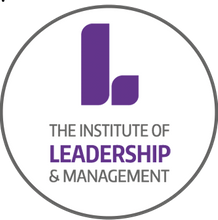It has always been my dream for organisations to have at their fingertips an integrated approach to their internal issues that would draw upon the finest aspects of leadership, psychology and neuroscience.
Taken together, those three disciplines have an amazing power to go deeper into the root causes of a problem and, as such, create far more sustainable change.
At its heart, psychology is the study of human behaviour. And leadership psychology integrates the theories and practices inherent in organisational systems with the fundamentals of human psychology.
People often find the term ‘psychology’ a little scary. Perhaps it strikes some of us as rather invasive. But if we focus on the overarching ‘human behaviour’ theme, it takes on a more approachable set of vibes and connotations.
Indeed, I dare say that as leaders, it’s compulsory to know your psychology, because of the impact you have on other people around you without even realising it.
As unlikely as it may seem, emotions are as psychologically contagious as Covid-19 is physically infectious. So, being aware of how you may be affecting others – no matter how inadvertently – is of paramount importance to the future of work. Particularly in light of the mental health implications of what we are currently experiencing in the workplace, which we cannot afford to ignore.
I can’t think of a single aspect of work’s future shape that won’t be touched by psychology – from how organisations communicate (whether virtually, physically or some blend) and how the hybrid model of work will eventually evolve, to areas such as team motivation; what collaboration will look like; creating psychologically safe virtual spaces: the list goes on.
Right now, the organisations that are doing well on this front are those that are prepared to put in the hard work to really grasp and implement the teachings of leadership psychology. They are also the ones that exhibited high levels of resilience during the pandemic – and continue to do so by reflecting on all the things they’ve learned over the past 15 months, constantly adapting and transforming amid an ongoing wave of change.
They are the organisations that are able to learn from evolutionary biology. In other words, they are able to see which aspects of their organisational DNA they must preserve, and which they must adjust so they can not merely recover to where they were, but catapult forward quickly. That skill requires an in-depth understanding of their own, systemic psychology. Obtaining that understanding can be a painful process – one that requires significant organisational stamina – because everything is tested: systems, processes, ways of working, you name it.
Covid-19 has changed the leadership landscape forever. But I’m not sure that everyone is onboard yet. The pandemic has brought organisations’ deficiencies into the spotlight and, from my own, scholarly vantage point, I’ve seen the emergence of too many extremes – from a complete absence of leadership at critical moments, to obsessive micromanagement and even forced positivity that was, to some extent, toxic.
Leadership psychology is not a luxury, a ‘nice to have’ or just another ‘ad hoc initiative’. It must be part of business as usual – a key component of an organisation’s annual check-up.
In just the same way an organisation will look at its financial profit and loss (P&L), it must examine its emotional P&L, too – and ensure that it has in place the systems and processes necessary to guarantee a healthy environment at every level, and in the round. We take our cars to an MOT every year for a reason. Organisations should be no different.
Leadership psychology is not a one-off, ‘set it and forget it’ remedy. It must be hardwired into the full range of other, routine governance procedures, supported by regular interventions and check-ups throughout the entire organisation.
Exemplary leaders must be able to speak the language of feelings, emotions and vulnerability – and perform a balancing act between psychological safe spaces (virtual, physical or hybrid) and organisational performance.
Integration, self-regulation – of self, teams and systems – and balancing compassion with containment are all key priorities.
Voices from our community: Dr Maria Katsarou-Makin is an Institute of Leadership & Management Fellow, founder and managing director of the Leadership Psychology Institute, author of Factions of a Mind: Understanding the Physical and Psychological Effects of Caring and co-author with Denis Sartain of Under Pressure: Understanding and Managing the Pressure and Stress of Work.




